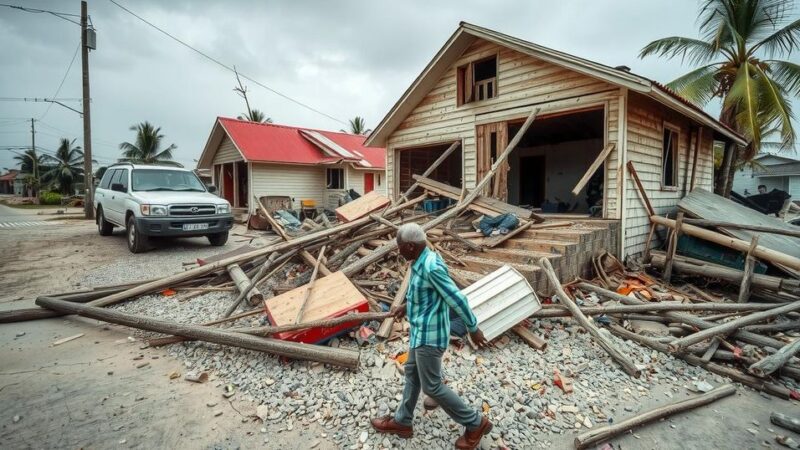COP29 struggled to achieve its core objectives of reducing greenhouse gas emissions and increasing climate finance for developing nations. The $300 billion commitment was deemed insufficient, exacerbating tensions between developed and developing countries. Although some initiatives progressed, the overall sentiment was one of disappointment, particularly regarding fossil fuel phase-out commitments. Moving forward to COP30 in Brazil, the hope remains for significantly enhanced climate ambitions.
COP29 presented a mixed bag of results, primarily falling short of reinforcing the core aims of UN climate negotiations: effectively reducing global greenhouse gas emissions and fostering national contributions toward these reductions. The agreed provision of $300 billion in climate finance for developing nations by 2035 has been criticized by the Global South as inadequate, further exacerbated by their discontent regarding the European Union’s proposed carbon border adjustment mechanism (CBAM). This disillusionment among developing countries is expected to negatively impact their national emissions commitments moving forward.
In particular, India has indicated that its forthcoming climate pledge will be less ambitious than anticipated, likely influenced by the sentiments expressed by other nations. “The [finance] goal is too little, too distant — it’s for 2035,” stated Chandni Raina, an Indian delegate, expressing concerns about the financial support available to facilitate a transition to low-carbon pathways without jeopardizing economic growth. As countries prepare to submit their revised nationally determined contributions by the end of February, the upcoming COP30 in Brazil appears to be on uncertain ground.
Despite some achievements at COP29, such as advancements in operationalizing carbon markets and a renewed pledge to enhance nuclear capacity, the climate negotiations were marred by insufficient commitments to phasing out fossil fuels. Notably, the final agreement only included a vague reference regarding fossil fuel transitions, a point of contention for many climate-vulnerable nations and advocates for stronger climate action. As a result, many are wary of the COP process’s effectiveness if significant strides are not made at next year’s summit.
However, it is essential to recognize that negotiations are often a balancing act among diverse interests and pressures. Brian Hill, former CEO of COP26, remarked on the resilience of the COP process, stating that although countries may disagree, they value arriving at an agreement and maintaining dialogue on climate challenges. This sentiment is echoed by various officials who stress the importance of continued engagement in an increasingly complex global landscape.
In conclusion, while COP29 failed to deliver on many fundamental objectives regarding climate finance and fossil fuel commitments, it exhibited noteworthy progress in certain areas. Moving toward COP30, it is imperative for all parties to enhance their climate ambitions substantially, establishing a stronger foundation for effective global climate action moving forward, despite the setbacks experienced in Azerbaijan.
The Conference of the Parties (COP) is an annual meeting of the parties to the United Nations Framework Convention on Climate Change (UNFCCC), where critical decisions on climate policy are made. COP29’s proceedings highlighted the ongoing struggles within international negotiations to galvanize substantial emissions reductions and the finance necessary to enable developing countries to adopt more sustainable practices. Recent negotiations have underscored the division between developed nations and the Global South, particularly in the context of climate financing and policy implementations like carbon border adjustments, all of which profoundly affect national commitments and collaborative efforts in combating climate change.
COP29 demonstrated considerable challenges in aligning international objectives for climate action, particularly regarding the expectations of the Global South for adequate financial support. While specific initiatives made headway, the overall outcomes fell short in addressing fossil fuel dependency and clearer commitments to emissions reductions. The forthcoming COP30 in Brazil will serve as a critical platform to reassess and elevate national pledges in climate ambitions, with the need for stronger adherence to climate goals ever more pressing in light of recent disappointments.
Original Source: www.energyintel.com







